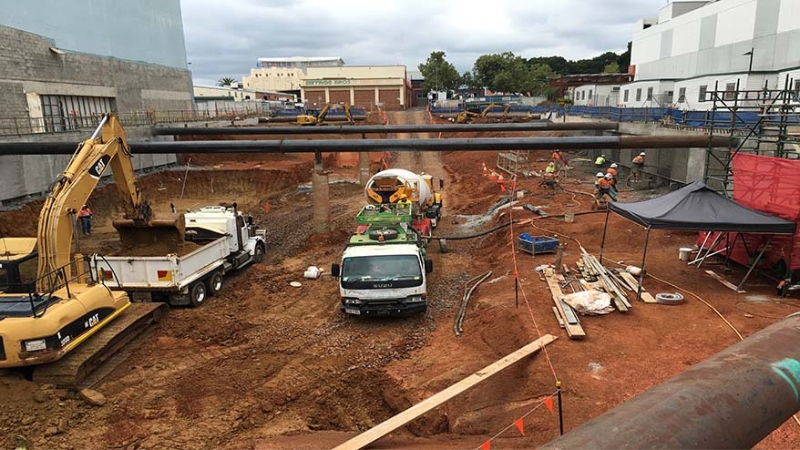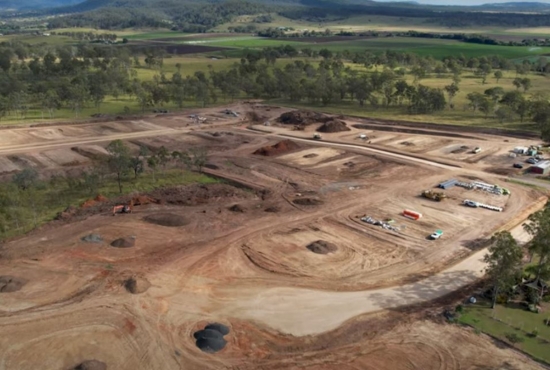


Engineering geologists work within ground engineering teams to ensure the safety and suitability of a selected site for the proposed construction. The primary objective of an engineering geologist is to determine potential hazards that may arise from geological processes such as erosion, deposition of materials, volcanic activity, slope stability at any point before, during, or after construction. In order to identify and interpret these potential hazards, engineering geologists firstly make detailed observations then carry out various technical and scientific assessments and make recommendations based on the results. The recommendations that are made often directly impact the broader detail, design and construction of the project.
While the work that engineering geologists carry out is remarkably varied, depending on the size and scope of the project they’re working on, some of the general duties involved typically include site investigations, geotechnical assessments, geological hazard analysis, environmental impact assessments and geological mapping. They accomplish this by collecting, analysing and interpreting primary data, utilising existing site information (such as images, maps, survey and reports) and drawing upon relevant industry standards, science and mathematics.
All construction projects, regardless of size or scope, require careful and considered planning and risk assessment. This process is imperative for ensuring that the proposed structure can be utilised safely and will have the capability of withstanding the test of time.
Engineering geologists work with the rest of the ground engineering team to conduct detailed investigations which identify potential geological risks that would prevent the proposed structure from fulfilling its intended purpose. Professional and experienced engineering geologists play a critical role in assuring the stability and durability of the proposed structure by collecting, analysing and interpreting data and drawing conclusions about the selected site.
By engaging an engineering geologist during the planning and design of a construction project, developers can acquire an extensive understanding of the site’s geological make-up, and receive insightful and reliable recommendations for the design of their structure.
In practice, engineering geologists collaborate with wider construction and civil engineering teams to ensure that throughout the construction process, geological risks are identified, assessed, mitigated appropriately and all recommendations are actioned accordingly.
Due to the unique and important role that engineering geologists play, they are critical to the construction process before, during and after the completion of the project.
Prior to initiating any construction project, engineering geologists assess the geological conditions and provide recommendations for site suitability, foundation design, and potential hazards.
During construction, engineering geologists monitor and manage geotechnical aspects, ensuring proper excavation techniques, slope stability, and adherence to recommended risk mitigation measures.
Engineering geologists continue to contribute after project completion by conducting post-construction evaluations, monitoring long-term performance, and recommending maintenance strategies.
Due to the specialised and technical nature of the work they conduct, engineering geologists are increasingly in demand across various sectors and industries such as construction, mining and energy, environmental consultancies and government agencies.
Typically, in a construction industry setting, an engineering geologist will form part of a broader ‘ground engineering’ team with other geotechnical specialists like geotechnical engineers, soil technicians and geotechnical drillers. In this role, they’ll work on things like site selection, slope stability and foundation design.
In sectors like mining and energy, engineering geologists contribute to the examination and extraction of resources by evaluating ground conditions, identifying potential risks, and assisting in site selection.
When working for environmental consultancies and government agencies, engineering geologists play a crucial role in assessing environmental impacts on ground conditions, managing contaminated sites, developing strategies for polluted areas, land-use planning and disaster management.
Carrying out both lab work and field work and analysing surface and subsurface characteristics, a career in engineering geology is dynamic and rewarding.
Generally, in order to pursue a career in this field, you’ll need to complete a bachelor’s degree in geology, covering engineering, environmental science, civil engineering, soil & rock mechanics, geophysics, geology and/or mining engineering and for senior positions, a master’s degree is usually preferred.
Once you’ve obtained your qualifications, you’ll gain further experience with on-the-job training and field work experience, supported by further professional development opportunities.
After gaining employment in your chosen field, you’ll be able to seek out and join professional industry bodies and begin working towards more senior positions.
From there, the world is your oyster! You’ll be able to dive into exciting construction projects, or perhaps undertake further study and training to specialise in an even more niche field of engineering geology.
RMA Soils + Geotechnical is always on the hunt for future industry leaders. If you’re interested in pursuing a career in engineering geology, you can view our available jobs by heading on over to our careers page, or reaching out to us at enquiries@rmasoils.com.au.
Engineering geologists play a pivotal role in ensuring the safe and sustainable development of infrastructure projects while seeking to minimise geological hazards. Their specialised knowledge is pivotal in assessing geological conditions, analysing risks, and providing mitigation strategies.
Led by RPEQ accredited engineering geologist Danny Coleborn, the team at RMA Soils + Geotechnical have extensive experience and knowledge of ground conditions across Queensland and northern New South Wales.
We work hard to help our clients bring their construction projects to life by delivering consistent and reliable recommendations and solutions.
